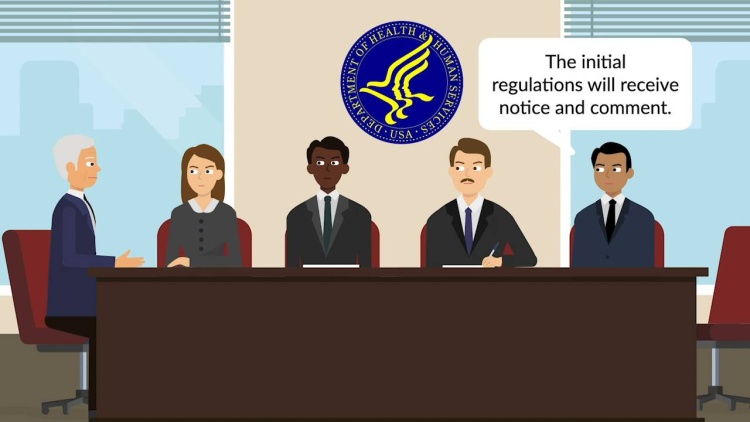American Hospital Association v. Bowen
United States Court of Appeals for the District of Columbia Circuit
834 F.2d 1037 (1987)

- Written by Sean Carroll, JD
Facts
In 1982, Congress amended the Medicare system to create Peer Review Organizations (PROs), which are private organizations of doctors that monitor some or all of the professional activities of Medicaid providers in their area. The primary purpose of a PRO is to review the compliance of health care providers with the Medicare Act. In creating PROs, Congress left the Department of Health and Human Services (HHS) (defendant) with broad discretion to implement the PRO system. HHS issued a number of regulations to govern the PRO program, as well as a series of directives and transmittals. The directives and transmittals—which contained a wide variety of instructions, guidelines, and procedures related to the PRO system—were issued without notice or comment. The American Hospital Association (AHA) (plaintiff) filed a petition with HHS for rulemaking. In support of its petition, the AHA argued that the body of regulations that HHS had issued regarding the PRO program was small and incomplete and that the bulk of the procedures governing PROs were not published as regulations. After HHS failed to respond to the AHA’s petition, the AHA sued HHS, arguing that HHS had circumvented the notice and comment requirements of § 553 of the Administrative Procedure Act (APA) in issuing the directives and transmittals. The AHA sought to have these directives and transmittals declared invalid.
Rule of Law
Issue
Holding and Reasoning (Wald, C.J.)
What to do next…
Here's why 907,000 law students have relied on our case briefs:
- Written by law professors and practitioners, not other law students. 47,100 briefs, keyed to 996 casebooks. Top-notch customer support.
- The right amount of information, includes the facts, issues, rule of law, holding and reasoning, and any concurrences and dissents.
- Access in your classes, works on your mobile and tablet. Massive library of related video lessons and high quality multiple-choice questions.
- Easy to use, uniform format for every case brief. Written in plain English, not in legalese. Our briefs summarize and simplify; they don’t just repeat the court’s language.





